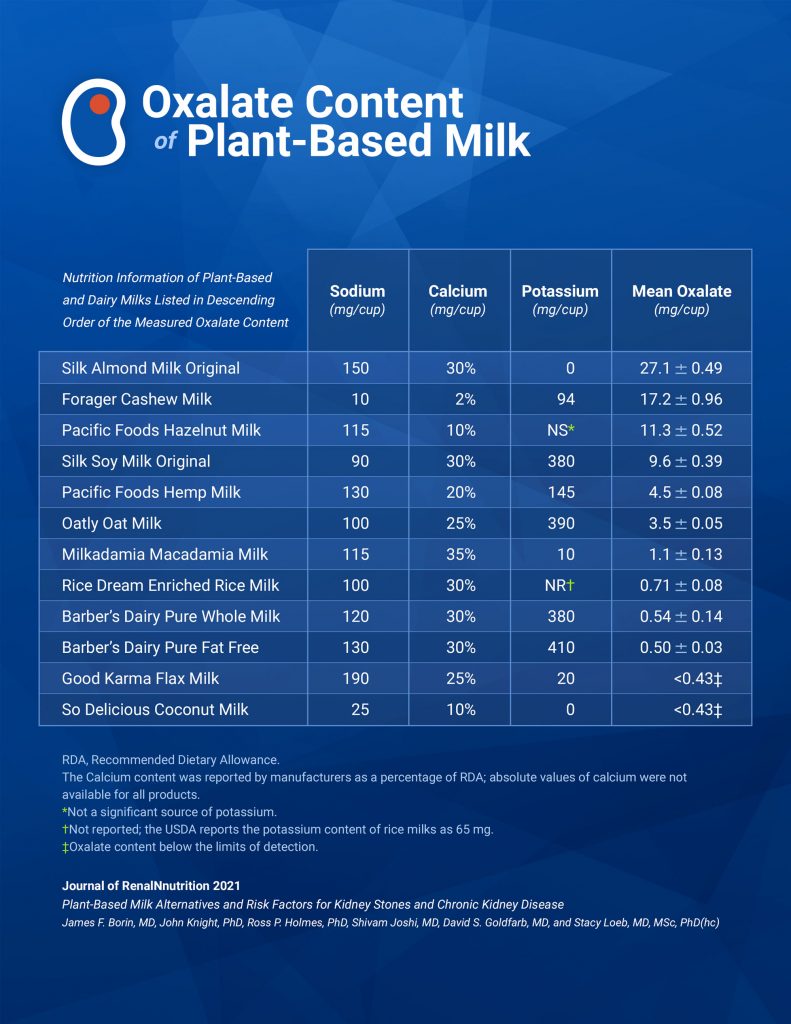This is a quick but essential update on milk. Plant-based milk, that is.
A new study takes a look at the oxalate content in various brands of milk—you can see the results in the pretty little graph that we created below.
You’ll see that the dairy milk studied was lactose-free. You’ll also notice that researchers noted a teensy bit of oxalate. I suspect this is do to the cow grazing on grass (along with some soil) all day and that this is where these trace amounts come from? I am giving it my best guess!
Keep in mind that researchers can’t necessarily study every single plant-based milk on the market. It’s certainly possible that you’re using a different brand with varying levels of oxalate, but life is too short to worry about the small discrepancies of every coconut or pea milk. Use the brand you like, stay away from the highest oxalate ones like almond milk (which you already knew).
Along with the oxalate content, this graph provides the potassium, sodium, and calcium content for each beverage. Remember that potassium and sodium are especially important considerations if you have Chronic Kidney Disease.
You can read a snippet of the article here. The full article requires payment, I’m afraid.















Leave a Reply